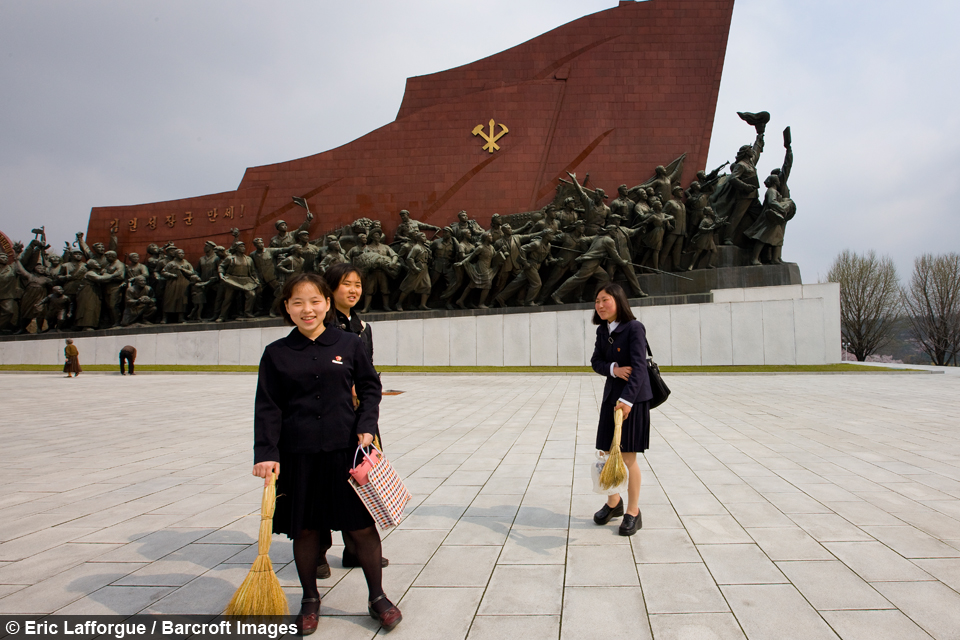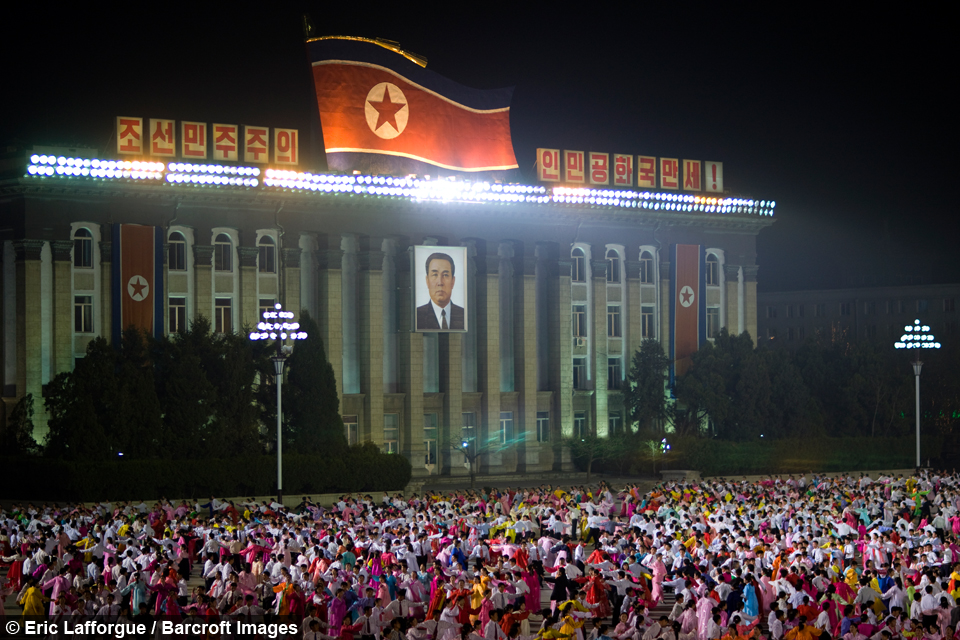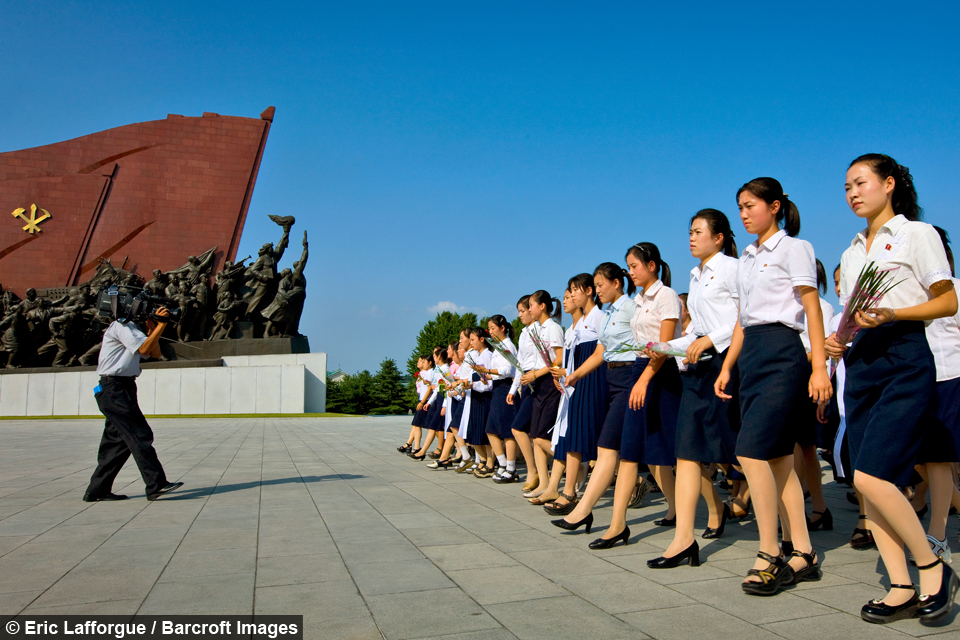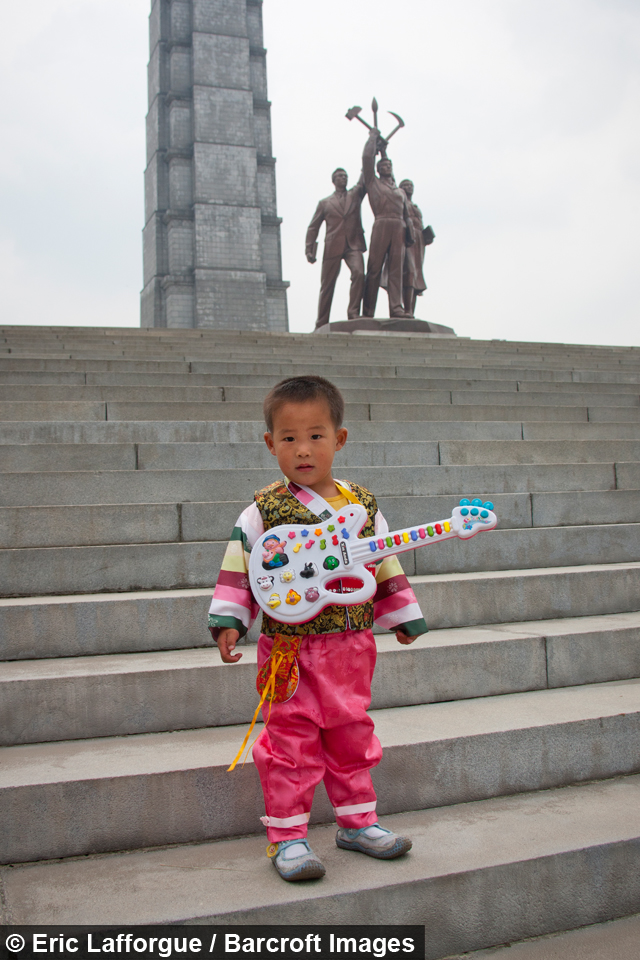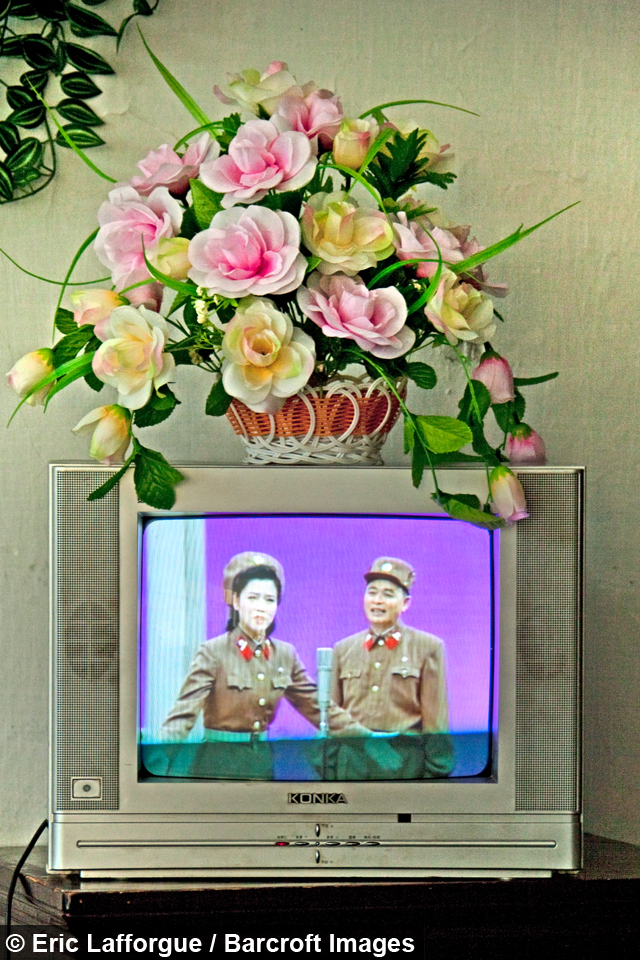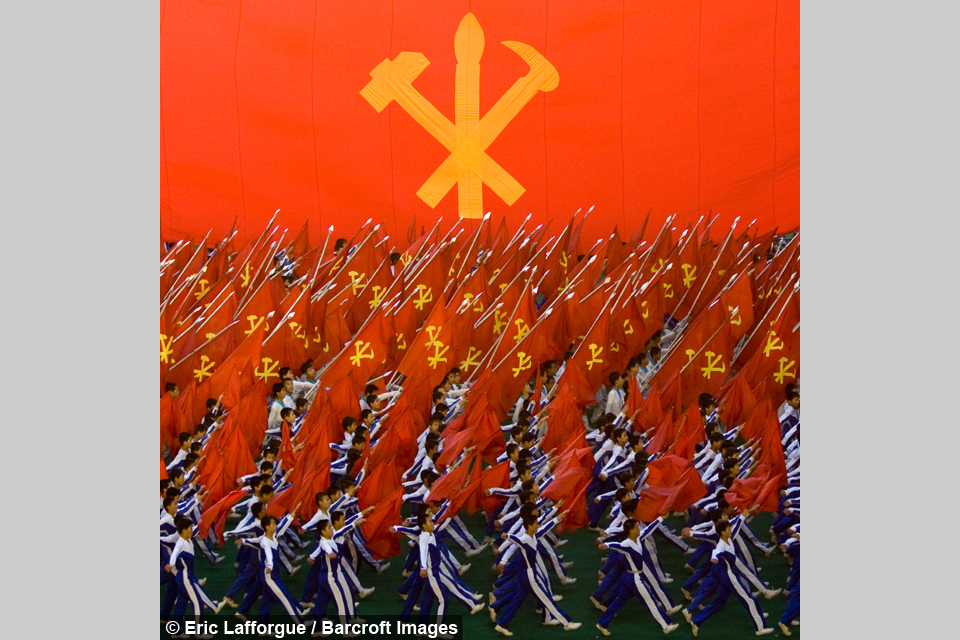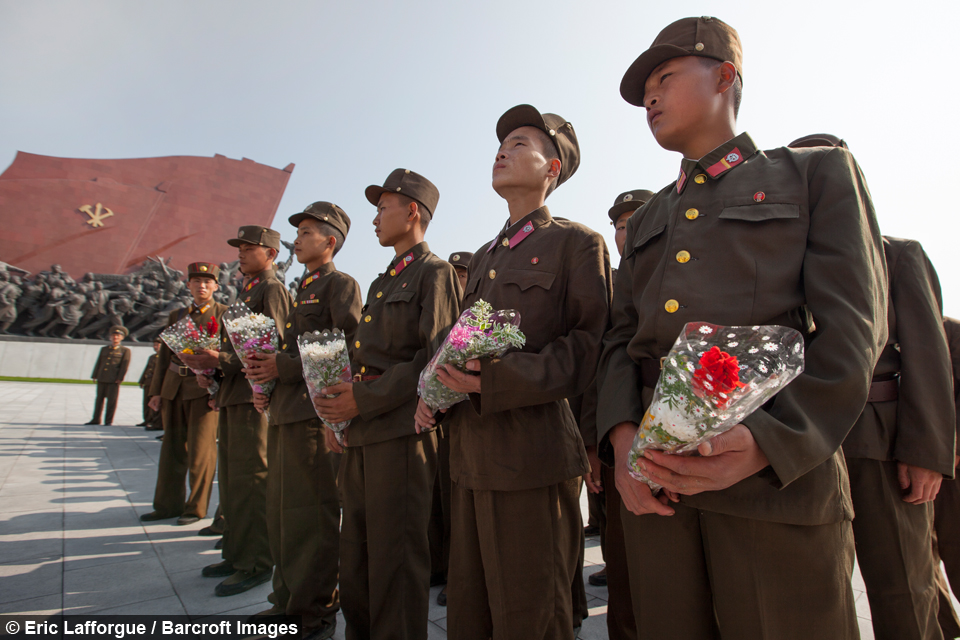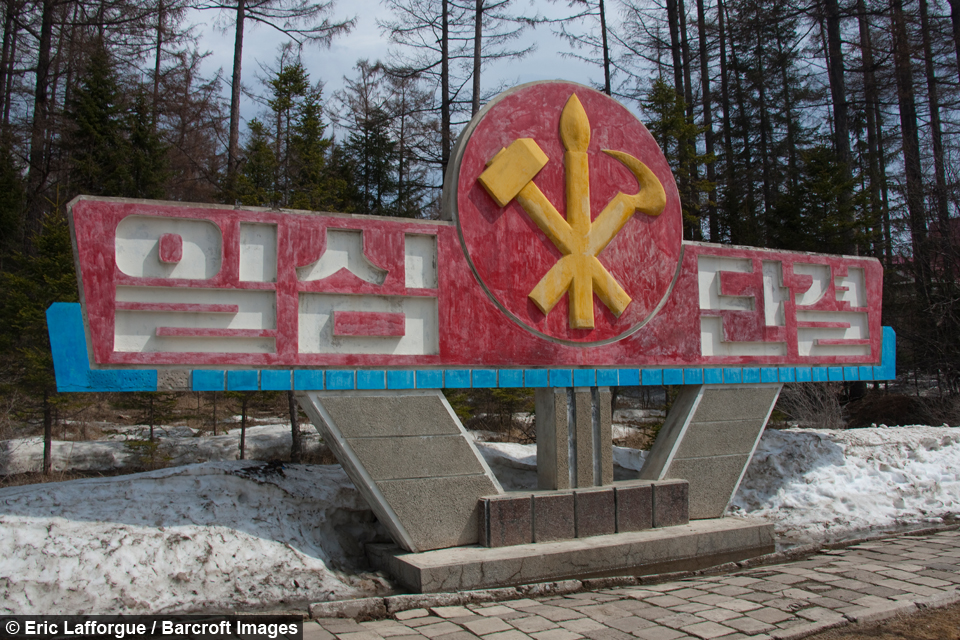Look behind the curtain: Photographer snaps people of North Korea
By Bunmi Adigun @Bunmi_Adigun
Scroll down for the full story
The Workers’ Party Congress is when all of the influential people of North Korea come together to discuss the priorities of the country over the next five to 10 years.
The event has extra importance as it is the first one that Kim Jong-Un will be involved in as the previous congress took place three years before he was born.
Preparation for the event has been a top priority for the North Korean Government as the congress is usually a time for personnel changes within the party as well as policy changes. It was at the last congress in which Kim Il Sung designated his son Kim Jong-il as his successor.
French photographer Eric Lafforgue, took intimate photos of the North Korean people during a five year period between 2008 and 2013, before being banned from the country by the communist government.
Eric was inspired to visit the country to see how the locals really lived for himself. During his travels around the secretive state he managed to capture a rare glimpse into the every day lives of the people of North Korea.
The 52-year-old professional photographer said: “I always try to see what’s behind the news headlines, you want to see the local people, how they live, what they think - not only things from the government’s point of view.”
Recounting his personal experience during his numerous visits to the country, Eric noticed a notable change in the people of North Korea and the freedoms they were given by the government.
He said: “The country changed so quickly in just a few years. Chinese products flooded the country, people have USB keys where they can put so much forbidden stuff on them, kids learn english at school.
“The atmosphere was really scary in 2008; in 2013 it was like China a few years ago. Now people have mobile phones, even if it is a good way for the government to monitor the calls, they allow them much more freedom to contact friends.”
According to Eric, luxuries such as televisions and computers are only reserved for party members making membership to this elite group - a necessity for citizens seeking to improve their standard of living. With government officials always on watch, citizens do their upmost to show their love and devotion to the country and hopefully get an invite to join the ruling party.
He said: “If you spend time with them you can see they are normal people! The only thing is that they feel obliged to speak about propaganda when they speak to you as they are always monitored by a guide.”
From who they marry to what they watch on television the state has an influence on every aspect of people’s lives in North Korea, however modern technology is helping to loosen the government’s grip on their personal lives.
Eric said: “You cannot have a love story and marry like we do. My second guide who was a girl of 20 who kept on texting her boyfriend, however meeting him was difficult as he was not supposed to date her.”
Surprisingly the people of North Korea are also keen football fans, making sure sure to keep abreast of all the latest news to do with the beautiful game. Interest in the game grew during the country’s appearance in the 2010 World Cup.
Eric added: “They also play football matches, I was surprised to see people are aware of Barcelona!”
Although the amount of foreigners travelling to North Korea is quite low, people living in the capital, Pyongyang, have access to more westerners than the rest of the country, which has given the locals more incite into the wider world.
Eric said: “In Pyongyang lives the elite, so many of those people have access to others who have travelled the world or even foreigners. Many know that the world is not really like how it is promoted to them by the regime, so those people see foreigners as a beacon of hope.”
However this same open-mindedness is not shared by everyone in the country as people living in the villages around North Korea are not as used to interacting with foreigners. Many of the people in villages live in poverty and are a lot more susceptible to government propaganda.
Eric said: “In the small villages where propaganda is still fierce, villagers see foreigners as the cause of all their problems as this is what the government tells them.”
